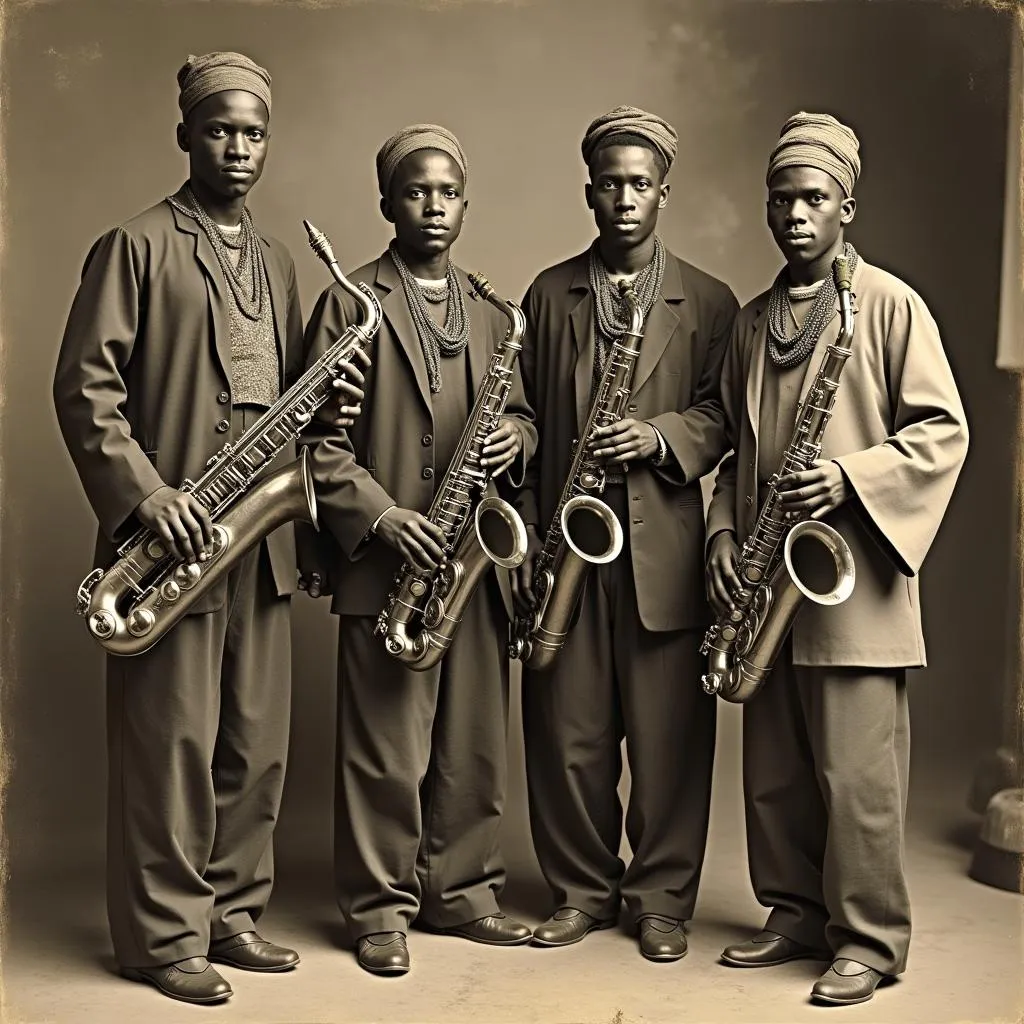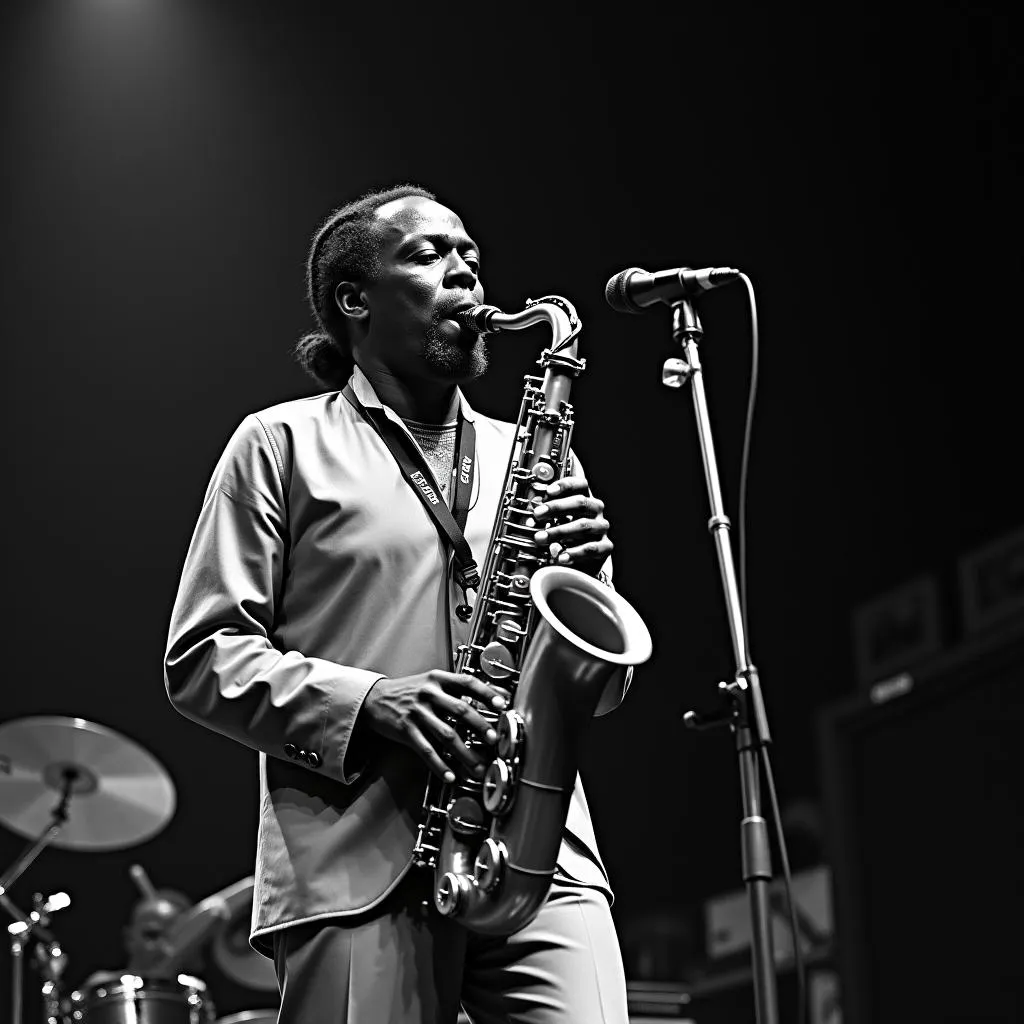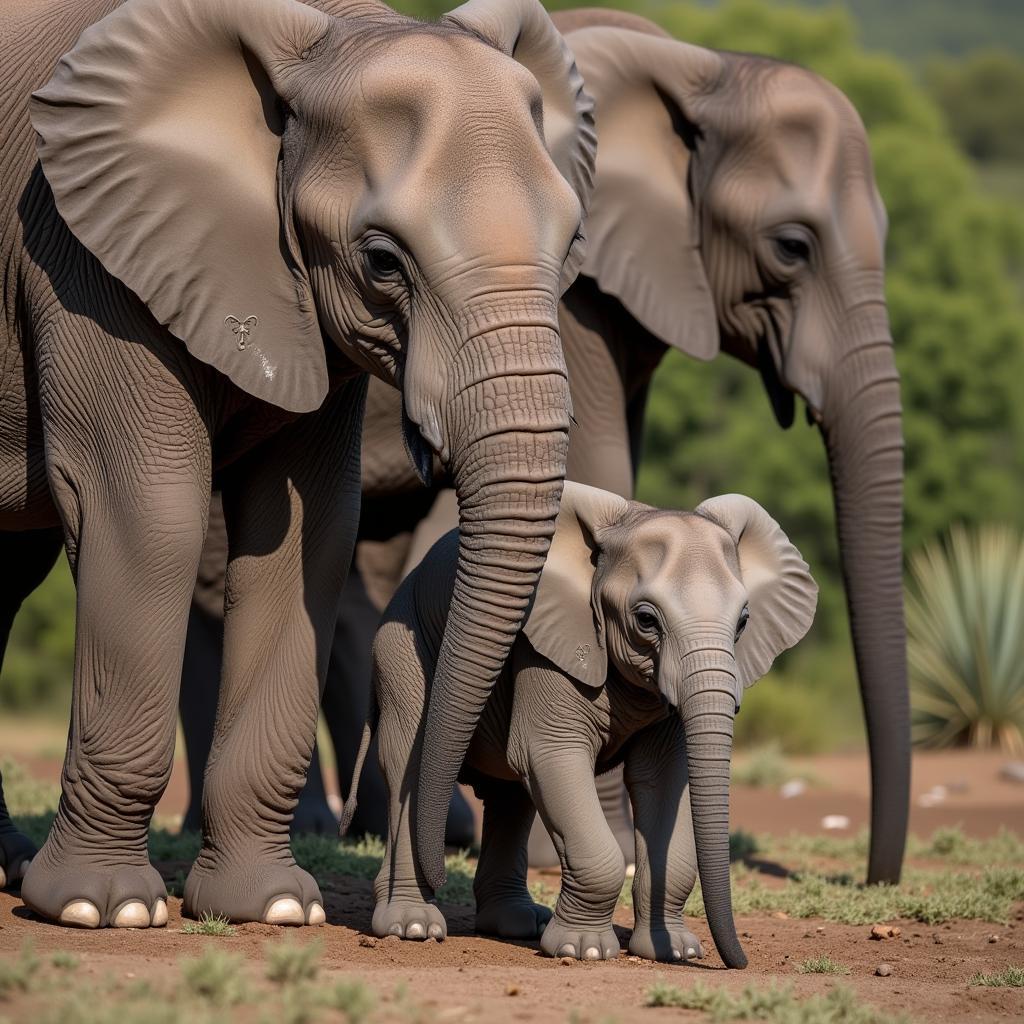The Enchanting Sounds of the African Sax
The African Sax, with its soulful melodies and vibrant rhythms, holds a captivating allure for music enthusiasts worldwide. More than just an instrument, it embodies the spirit of a continent, weaving tales of joy, sorrow, and resilience. This exploration delves into the captivating world of the African sax, uncovering its historical roots, celebrating its iconic figures, and showcasing its enduring influence on the global music scene.
Tracing the Roots: From European Shores to African Soil
 African Saxophone Origins
African Saxophone Origins
While originating in Europe in the mid-19th century, the saxophone found a welcoming home in the heart of Africa. Its arrival coincided with a period of immense cultural exchange, as colonial influences intertwined with indigenous traditions. The adaptability of the saxophone, capable of producing both mellow and powerful tones, resonated deeply with the expressive nature of African music.
Pioneers of Sound: Shaping the African Sax Identity
The early 20th century witnessed the rise of musical pioneers who embraced the saxophone and molded its sound to reflect their unique cultural experiences. In South Africa, the pennywhistle, a simpler, six-holed version of the saxophone, became synonymous with township jazz. Legends like Spokes Mashiyane and Lemmy “Special” Mabaso captivated audiences with their virtuosity, their music becoming an emblem of resistance during the apartheid era.
 Fela Kuti Playing Saxophone
Fela Kuti Playing Saxophone
Across the continent, in Nigeria, Fela Kuti, the visionary behind Afrobeat, harnessed the saxophone as a weapon for social commentary. His fiery solos and politically charged lyrics resonated far beyond the borders of his homeland, inspiring generations of musicians and activists alike. Kuti’s legacy continues to ignite passions, cementing the saxophone’s role as a powerful tool for social change.
A Tapestry of Styles: From Highlife to Mbalax
The African sax transcends geographical boundaries, finding its voice in a myriad of musical styles. In Ghana, it became an integral part of Highlife, a genre characterized by its danceable rhythms and joyful melodies. E.T. Mensah, often hailed as the “King of Highlife,” captivated audiences with his captivating stage presence and virtuosic saxophone playing, leaving an indelible mark on the genre.
Meanwhile, in Senegal, the vibrant sounds of Mbalax pulsate through the streets, a testament to the saxophone’s versatility. Groups like Orchestra Baobab seamlessly blend traditional Wolof rhythms with Cuban influences, creating a sonic tapestry that is both mesmerizing and uniquely Senegalese.
A Global Legacy: Echoes of the African Sax
The influence of the African sax extends far beyond the shores of the continent. Its vibrant melodies have permeated various genres, from jazz and funk to pop and electronic music. Artists like Manu Dibango, whose hit “Soul Makossa” became a global sensation, and Seun Kuti, who carries the torch of his father’s Afrobeat legacy, demonstrate the enduring appeal of the African sax.
“The African sax is more than just an instrument, it’s a storyteller, a voice for the voiceless, a beacon of hope and resilience.” – Amadou Fall, Senegalese music historian.
The Enduring Allure of the African Sax
The African sax continues to captivate audiences with its raw energy and emotional depth. Its ability to convey the complexities of the human experience, transcending language and cultural barriers, solidifies its place as a cherished instrument. As new generations of musicians continue to embrace its vibrant tones, the future of the African sax remains bright, promising to weave new sonic tales for generations to come.


